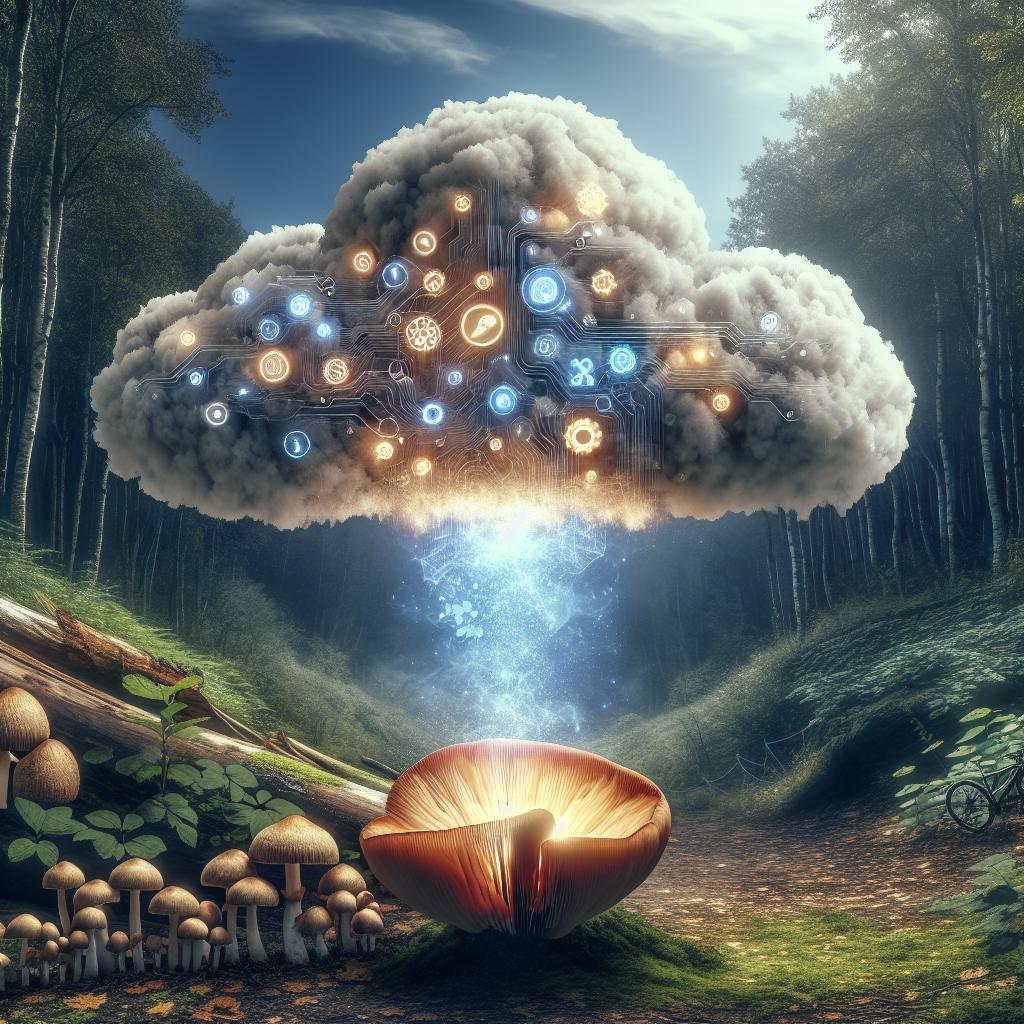
“The High Question: Can Lion’s Mane Mushroom Get You High?”
Picture this: a mystical, shaggy mushroom that not just tickles your culinary fancy but also whispers tales of sharpened minds and clearer thoughts. Enter the Lion’s Mane Mushroom, a culinary delight turned brain health hero. As its mane-like form dances between the realms of gourmet kitchens and ancient medicine cabinets, a burning question arises—does this fabled fungus hold the key to an all-natural high?
It’s a modern-day quest, as seekers of wellness and wanderers of cognitive expanses alike turn their gaze towards this ethereal organism. With its reputation for boosting mental clarity, the Lion’s Mane Mushroom teeters on the edge of mystical, prompting some to wonder if it could also induce a psychedelic journey through the depths of one’s own consciousness.
Before you set off on this forage into the unknown, let’s dissect the myths, unearth the science, and discover whether the Lion’s Mane can truly elevate more than just your health. Stay tuned, as your curiosity is about to be rewarded with a mind-bending exploration into the reality behind the high question of the Lion’s Mane Mushroom.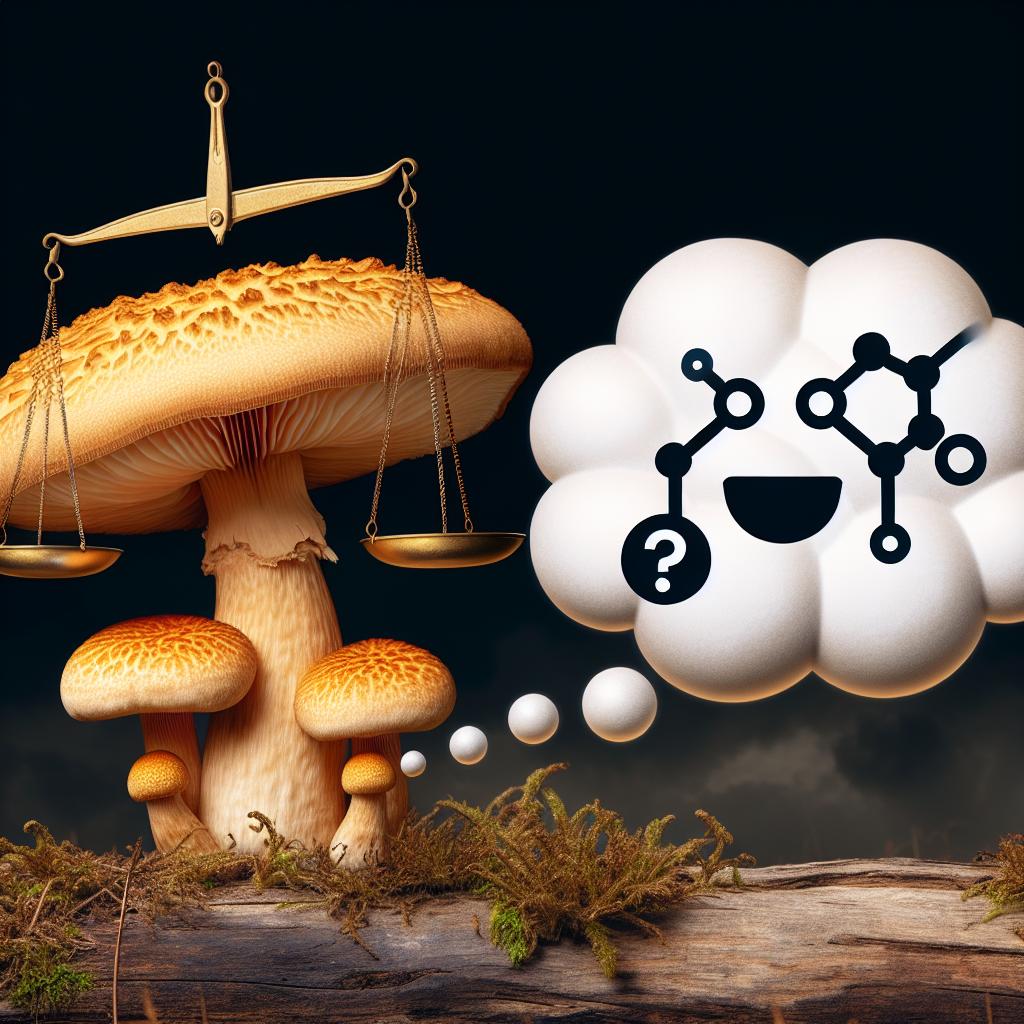
Table of Contents
- Unraveling the Mystery: What is Lion’s Mane Mushroom?
- Delving into the Psyche: The Psychoactive Debate
- The Lion’s Tale: Historical Uses and Misconceptions
- Clarifying the Buzz: Chemical Composition of Lion’s Mane
- Experiencing Lion’s Mane: User Testimonials and Reports
- Debunking Myths: Setting the Record Straight on Hallucinogenic Effects
- The Science Speaks: Clinical Studies on Lion’s Mane and the Brain
- Beyond the High: Therapeutic Benefits Without the Euphoria
- Navigating Legalities: Understanding the Status of Lion’s Mane
- From Curiosity to Clarity: Making an Informed Decision on Lion’s Mane Usage
- Q&A
- Key Takeaways
Unraveling the Mystery: What is Lion’s Mane Mushroom?

Peering into the world of medicinal mushrooms, Lion’s Mane stands out not just for its unique, shaggy appearance reminiscent of a white pom-pom or indeed, a lion’s mane, but for the blend of health benefits this fascinating fungus possesses. Native to North America, Europe, and Asia, these mushrooms are more than just a culinary delight; they’re touted for their impressive compounds that boost overall cognitive function, nerve growth, and immune defense.
Before diving into its psychedelic reputation, let’s break down the key components found within Lion’s Mane mushroom. This nootropic natural wonder is packed with hericenones and erinacines, compounds linked to promoting nerve growth factor (NGF) in the brain. Imagine a natural agent sparking the repair and regeneration of neurons, potentially paving the way towards shielding your brain from the ravages of age-related diseases.
- Improves cognitive function and memory
- Reduces inflammation and oxidative stress
- Stimulates nerve growth and brain cell regeneration
- Acts as a strong natural antidepressant and anxiolytic
Now, brushing up against the edge of the mind-altering universe, it’s crucial to understand that despite its miraculous perks, Lion’s Mane mushroom does not induce the intoxicating highs of its psychedelic cousins like Psilocybe cubensis. The ‘high’ associated with Lion’s Mane is more of a heightened sense of focus and mental clarity rather than a mind-bending trip through the cosmos. Expect mental sharpness and emotional equilibrium, not kaleidoscopic visions.
| Compound | Effect |
|---|---|
| Hericenones | Stimulates NGF synthesis |
| Erinacines | Enhances neuron outgrowth |
| Beta-Glucan Polysaccharides | Boosts immunity |
| Antioxidants | Fights oxidative stress |
In essence, Lion’s Mane acts as a cerebral janitor, sweeping away the cobwebs of your mind and cultivating an inner environment ripe for mental expansion and resilience. It’s an invitation to enhanced mental acuity – a brain tonic that sobers rather than intoxicates. So, while you won’t “get high” in the recreational sense, embracing Lion’s Mane might just elevate your cognitive baseline to new peaks worthy of exploration.
Delving into the Psyche: The Psychoactive Debate

When we talk about getting ‘high,’ we typically refer to the altered state of consciousness, often resulting from the consumption of substances with potent psychoactive effects. Popular discourse has spiraled around various naturally occurring elements that purportedly tip the scales of our mental state. Lion’s mane mushroom, a curious fungi named for its cascading, white spines, has crept into this conversation—but does it have the power to send users on a psychedelic journey?
In an age where we’re constantly seeking the next superfood or natural enhancer, lion’s mane has gained fame for its health benefits rather than its euphoric effects. Known scientifically as Hericium erinaceus, this mushroom is lauded for its potential to support neurogenesis—the growth and development of nervous tissue—and is associated with improved cognitive function and mental clarity. So, rather than a ‘high,’ users may experience an elevation in their focus and concentration.
The compounds at play defy the usual suspects found in psychoactive mushrooms, like psilocybin. Lion’s mane contains hericenones and erinacines, compounds that stimulate the production of the nerve growth factor (NGF). Below is a simplified look at these compounds:
| Compound | Effect |
|---|---|
| Hericenones | Promotes NGF synthesis in the brain |
| Erinacines | Enhances nerve regeneration and myelination |
However, this doesn’t discredit the mushroom from having a certain je ne sais quoi that may edge on psychoactivity. Delving into anecdotal evidence, some individuals report feeling calmer and more positive after regular consumption, a psychological shift that, while not ‘high’ in the classical sense, signifies a notable change in baseline wellbeing. In essence, while the mushroom doesn’t pack a psychedelic punch, it might very well uplift the psyche, paving the way for enhanced mental performance.
The Lion’s Tale: Historical Uses and Misconceptions

Delving deep into the annals of history, the Lion’s Mane mushroom, or Hericium erinaceus, has been more than just a culinary delight. It’s a story studded with intrigue and confusion, where mystique intertwines with the mundane. Ancient healers revered this peculiar fungus, touting its potential to bolster the mind and fortify the body. The shaggy, white tendrils were not only ingredients in gourmet dishes but also featured in traditional medicine—especially within Chinese cultural practices—for promoting cognitive health and nerve regeneration.
Amidst the whispers of the past, talk of transcendent experiences arose. Many believed the brain-like mushroom could unlock a hidden doorway to enlightenment, though this was not quite the “high” some imagine today. Instead of inducing psychedelic voyages or mind-altering states, the mushroom was, and still is, associated with heightened mental clarity and an improved memory. This stands in contrast to the misconception that it could induce a euphoric state akin to other more notorious fungi.
- Enhanced memory
- Neuroprotective capabilities
- Immune system support
- Improved cognitive function
Our collective imagination has, at times, distorted reality with a hint of wishful thinking. For those yearning for the Lion’s Mane mushroom to be a ticket to psychedelic exploration, science offers a gentle, yet firm, reality check. It contains no psychoactive compounds like psilocybin found in its hallucinogenic cousins. However, it has drawn attention from researchers fascinated by its bioactive compounds, such as hericenones and erinacines, which may support mental acuity and physical wellness.
| Compound | Reported Benefit |
|---|---|
| Hericenones | Stimulate Brain Cell Growth |
| Erinacines | Neuroprotective Effect |
| Antioxidants | Combat Oxidative Stress |
In an age where alternative wellness trends often blur the lines of fact and fiction, it’s crucial to separate the potent myths from the potent realities. Lion’s Mane has a storied past, packed with genuine potential benefits backed by modern science. It’s not the stuff of shamanic journeys but of potential neurological nourishment and healing. So, while the quest for mental elevation through Lion’s Mane is grounded more in science than in spiritual highs, its tale is an enchanting weave of historical uses and misplaced misconceptions, promising a different kind of journey—one of wellness and cognitive harmony.
Clarifying the Buzz: Chemical Composition of Lion’s Mane

Amidst a forest of health supplements and natural remedies, Lion’s Mane mushroom stands out with its distinctive, shaggy appearance that resembles the mane of a lion. But it’s not just its looks that have captured the attention of wellness enthusiasts—it’s what’s on the inside that counts. The alchemy of this mushroom makes it a fascinating subject of discussion in the world of alternative medicine.
Let’s dive into the mushroom’s molecular magic. Lion’s Mane is a cocktail of biologically active compounds. Among its components are hericenones and erinacines—unique to this mushroom and known for their neuroprotective properties. Add to that a brigade of polysaccharides, such as beta-glucans, and you’re looking at a powerful immune system ally. These compounds collectively contribute to the mushroom’s touted health benefits, from cognitive enhancement to nerve growth.
- Hericenones: Boosts cognitive function
- Erinacines: Stimulates the growth of nerve cells
- Beta-glucans: Strengthens immune defenses
- Antioxidants: Combats oxidative stress
But when it comes to the question “Can it get you high?”, the compounds in question are far from the psychoactive substances found in other mushrooms like psilocybin. Lion’s Mane’s effects are subtler, more like a gentle wave of mental clarity and less like the psychedelic tsunami one might experience with magic mushrooms. It’s these properties that foster concentration and mental acuity rather than a mind-altering high.
| Compound | Benefit |
|---|---|
| Hericenones | Cognitive Boost |
| Erinacines | Nerve Growth |
| Beta-glucans | Immune Support |
| Antioxidants | Oxidative Stress Fighter |
Your curiosity might still be simmering with intrigue, but rest assured, the chemical composition of Lion’s Mane is firmly rooted in the ground of health, not hallucination. Leveraging its unique blend of components, this mushroom invites your neurons to a dance of productivity and renewal, without taking them on a trip to la-la land.
Experiencing Lion’s Mane: User Testimonials and Reports

Delving into the realm of the Lion’s Mane mushroom, enthusiasts share their experiences, not quite the psychedelic adventure some might expect, but rather a journey into enhanced cognitive clarity. Let’s explore some of the personal accounts from those who have invited this majestic fungus into their lives.
- Mental Clarity & Focus: Emma, a software developer, reports, “After incorporating Lion’s Mane into my morning routine, the brain fog lifts much quicker, and I find myself more focused and productive throughout the day.”
- Creative Boost: Alex, a graphic artist, mentions, “The days I take Lion’s Mane, I feel like my creative block just disappears, and ideas flow effortlessly.”
- Anxiety & Stress Relief: Jon, a graduate student, notes, “It’s alleviated a lot of my academic stress and surprisingly made me feel more grounded and calm.”
Still, skeptics ask, ”But does it impart a high?” The testimonials speak to a different kind of ‘high’ – an uplift in cognitive and emotional well-being rather than a psychedelic experience. The Lion’s Mane mushroom nurtures the mind, fostering a serene alertness that many find indispensable.
| User | Benefit |
|---|---|
| Lara, Yoga Instructor | Enhanced concentration during practice |
| Dave, Entrepreneur | Steadier energy levels, less reliant on caffeine |
These stories outline a common thread: cognitive enhancement without the edge. Lion’s Mane is lauded for its potential neuroprotective effects, and regular consumers report a significant uptick in mental agility. As we navigate a world where the natural and the neural meet, Lion’s Mane emerges as a humble yet powerful ally for mental health.
So, while Lion’s Mane may not get you ‘high’ in the traditional sense, the elevation it brings to the quality of life is undeniable. Those searching for a boost in mental performance without the side-effects associated with other substances have found solace in this natural wonder. It’s clear that for many, the Lion’s Mane mushroom is an anchor, rooting them firmly in a state of enhanced cognition and emotional stability.
Debunking Myths: Setting the Record Straight on Hallucinogenic Effects
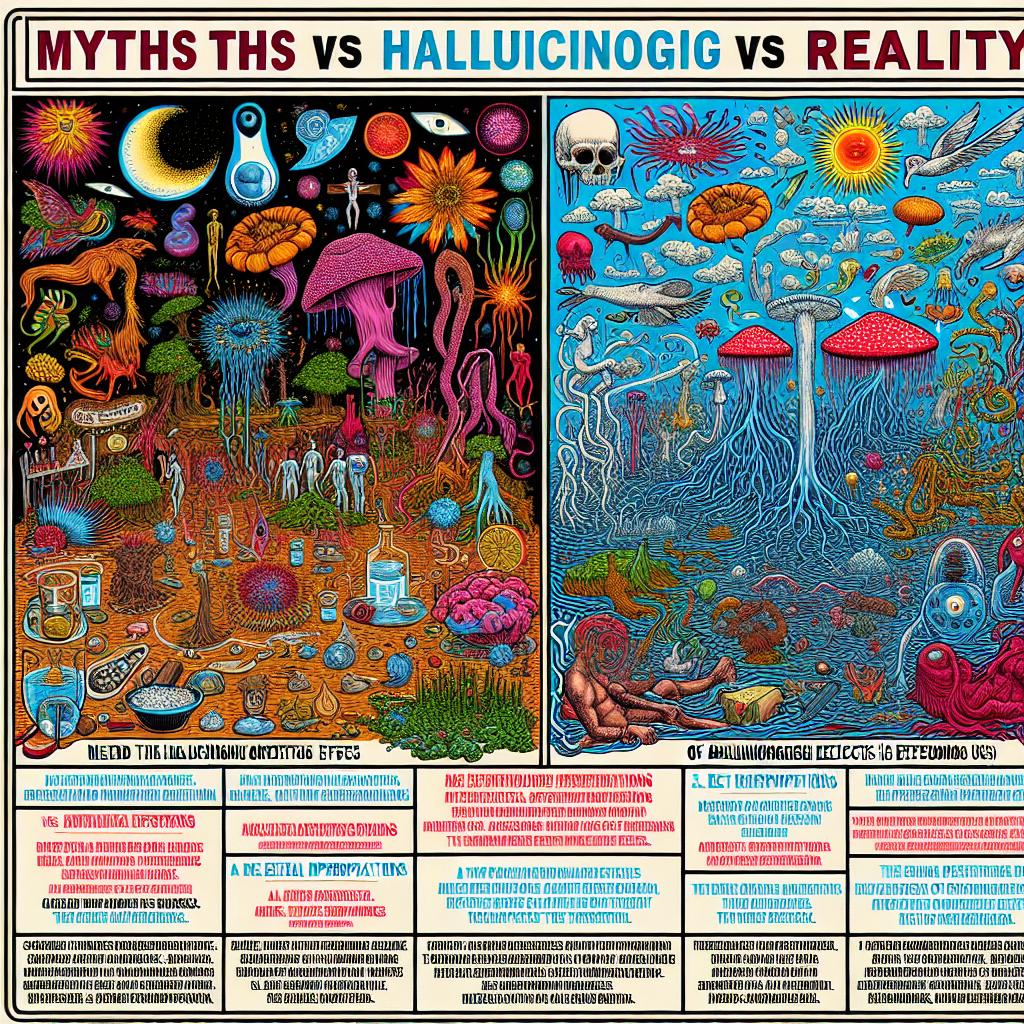
When venturing into the world of functional mushrooms, it’s easy to come across folklore and misinformation, particularly regarding their effects. Among these, the lion’s mane mushroom has gathered attention, with some wondering if it can induce a psychedelic experience. Let’s clarify this with unequivocal facts.
Lion’s mane mushroom (Hericium erinaceus) does not contain any of the psychoactive compounds typically associated with “magic” mushrooms, like psilocybin or psilocin. The primary compounds in lion’s mane are hericenones and erinacines, which promote nerve growth factor (NGF) synthesis — a decidedly non-hallucinogenic effect. To put it plainly, this mushroom enhances brain health, not distortion.
- No psilocybin or psilocin: compounds responsible for hallucinogenic effects are absent
- Rich in hericenones and erinacines: promotes NGF and brain health
- FDA-classified as GRAS (Generally Recognized as Safe): You can consume it without fears of psychedelic side effects
Despite the absence of hallucinogenic properties, lion’s mane is sometimes touted for its mind-altering capabilities in a different sense. Users report feeling more focused, an improved memory, and a sense of mental clarity — likely linked to its neurotrophic benefits. This, however, is far from the ”high” one might experience with substances classified as hallucinogens.
| Mushroom Variety | Contains Hallucinogenic Compounds? | Notable Effects |
| Lion’s Mane | No | Cognitive support |
| “Magic” Mushrooms | Yes | Psychedelic experiences |
Now that we’ve separated fact from fiction, it’s important to understand that lion’s mane has earned its laudable reputation among brain health supplements. If you’re seeking a natural cognitive enhancer, it may just be the non-trippy ticket to enhancing your neurology. Remember, a true high is rooted in wellness, not in altered states.
The Science Speaks: Clinical Studies on Lion’s Mane and the Brain
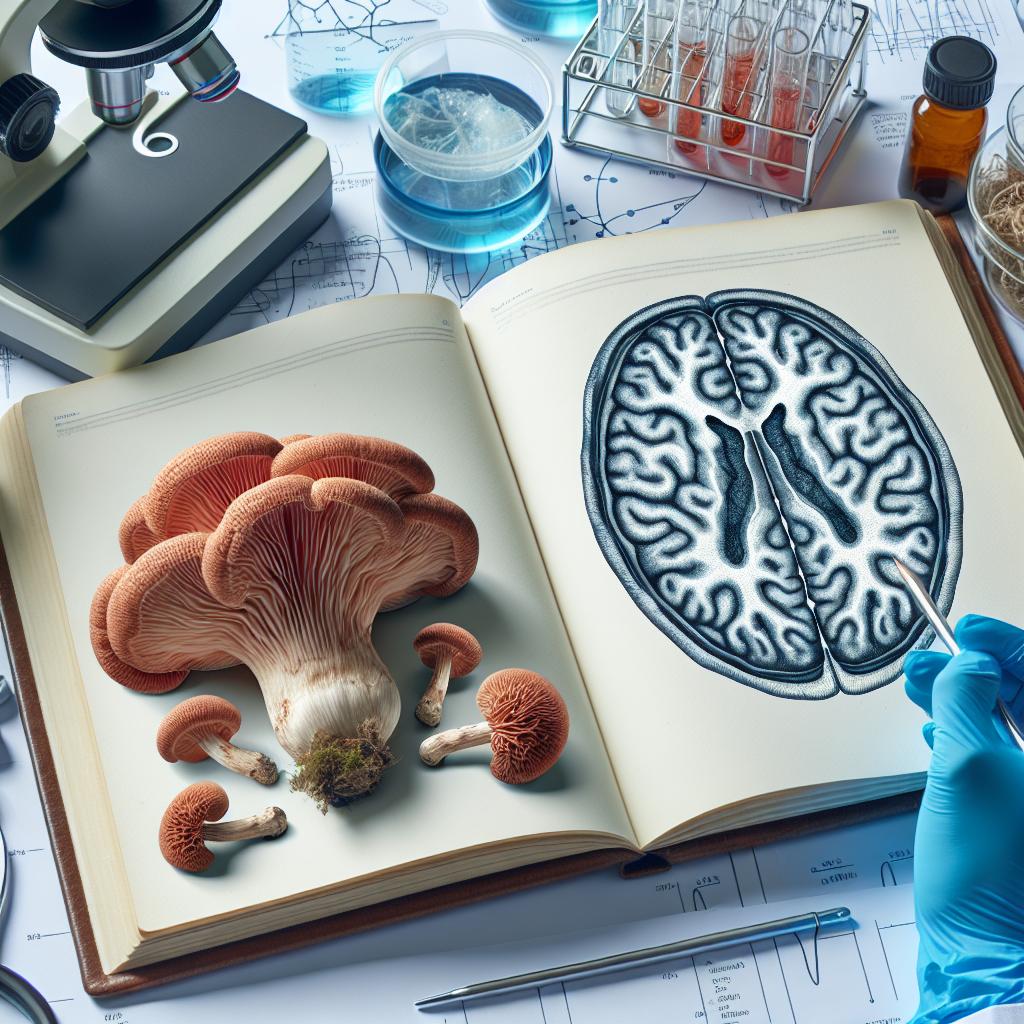
Embarking on a journey through the corridors of cognitive enhancement, Lion’s Mane mushroom (Hericium erinaceus) has piqued the curiosity of wellness enthusiasts and scientists alike. This shaggy, white mushroom, reminiscent of the mane of a majestic lion, isn’t just a culinary delight; it’s a focal point for serious scientific research regarding its effects on the brain.
In the quest to understand the mushroom’s cerebral influence, myriad clinical studies have emerged. Researchers have zeroed in on bioactive compounds within Lion’s Mane, such as hericenones and erinacines. These compounds are celebrated for their potential to stimulate nerve growth factor (NGF) synthesis in the brain, a key player in the maintenance and survival of nerve cells.
- A pivotal 2009 study published in Phytotherapy Research showcased the mushroom’s capacity to improve cognitive function in a small cohort of adults suffering from mild cognitive impairment.
- A separate research trial published by the Journal of Agricultural and Food Chemistry revealed that regular intake of Lion’s Mane could play a role in nerve regeneration and repair.
- Moreover, the effects noted in a 2013 study in Biomedical Research suggest a potential alleviation of anxiety and depressive behaviors, pointing to the adaptogenic properties of Lion’s Mane.
However, when it comes to the question of psychoactivity—whether Lion’s Mane can indeed get you “high”—the short answer is no. Despite its impressive repertoire of brain-boosting prowess, scientific investigation consistently indicates that the mushroom does not induce a psychotropic state. It operates in a subtler domain of well-being, enhancing mental clarity and concentration without the euphoric effects associated with other substances.
| Study | Year | Key Findings |
|---|---|---|
| Mori et al. (Improvement of cognitive function) | 2009 | Enhanced cognitive performance in adults with mild cognitive impairment. |
| Kawagishi et al. (Nerve regeneration) | 2012 | Suggested potential in nerve regeneration and protective effects on the brain. |
| Ryu et al. (Anxiety and depression) | 2013 | Reduced anxiety and depressive behaviors, indicating adaptogenic benefits. |
In essence, while the Lion’s Mane mushroom does not quite take your symptoms for an ethereal flight, it does firmly ground its benefits in neuroprotective and cognitive-enhancing studies. Far from the fleeting high of psychedelic substances, the mushroom’s influence is likened to a nurturing, cognitive caretaker, tending to the intricate garden of our minds.
Beyond the High: Therapeutic Benefits Without the Euphoria

While the quest for a natural cognitive boost might lead some to explore the world of nootropics, there’s a particular mushroom that stands out for its brain-boosting abilities without the added ‘high’ one might expect from other substances. Lion’s Mane mushroom, scientifically known as Hericium erinaceus, is one such marvel of nature that promises mental clarity, without the psychedelic journey.
The allure of Lion’s Mane lies in its cogent compounds known as hericenones and erinacines. These naturally occurring substances have been studied for their neuroprotective properties and their ability to stimulate nerve growth factor (NGF) in the brain. For those seeking therapeutic benefits, here’s what this mighty mushroom can offer:
- Enhanced Memory and Focus: Regular consumption may lead to improved memory, focus, and cognitive function.
- Reduce Anxiety and Depression: Compounds in Lion’s Mane exhibit potential in the reduction of anxiety and depressive behaviors.
- Neuroregenerative Potential: It may help in the prevention or recovery from nervous system injuries.
- Immune System Boost: Beyond the brain, it provides overall enhancement to the immune defense system.
These accolades, however, don’t come with a catch of mind-altering effects. Unlike its fungal cousins that contain psilocybin, Lion’s Mane has no psychoactive properties. Its influence on cognition and well-being is subtle and accumulates over time, applying its magic discreetly as you go about your day. Dive into the science-backed evidence without any detours into euphoria – because who says improvement needs an altered state to be effective?
| Benefit | Study Findings | Impact |
|---|---|---|
| Cognitive Enhancement | Shown to stimulate NGF synthesis | Supports brain health and function |
| Mood Improvement | Potential reduction in depressive symptoms | Contributes to better mental well-being |
| Immune Support | Increases activity of the intestinal immune system | Strengthens body’s defense mechanisms |
When the wellness industry flirts with the line between recreation and therapy, Lion’s Mane kindly reminds us that profound benefits needn’t come with a ticket to the stars. It grounds us in the beauty of subtle, steady progress and healing, which in the end might just be the most transformative high of all. Embrace this non-intoxicating gift of the earth, and let your pursuit of well-being be as pure as the mushroom itself.
Navigating Legalities: Understanding the Status of Lion’s Mane

Entering the realm of Lion’s Mane mushroom and its mystical properties, it’s crucial for enthusiasts and newcomers alike to demystify the legal boundaries governing this natural wonder. Unlike its psychotropic cousins, Lion’s Mane is fully legal in the United States and many other countries worldwide, offering cognitive and nerve support without the stigma associated with controlled substances.
What sets Lion’s Mane apart is its remarkable nutritional profile, categorized as a functional food rather than an illicit psychoactive agent. While some might seek it for a mental boost, do not confuse this neurotropic ally with substances that alter perception or induce euphoria. Its superpower lies within its ability to potentially enhance brain function and support nerve growth, all within the legal perimeters of dietary supplement regulations.
For those looking to explore this supplement with peace of mind, here’s what to consider:
- Check your local laws – While federally permissible, some local jurisdictions might have specific rules regarding the possession or sale of medicinal mushrooms.
- Know your source – Reputable vendors will ensure their products are cultivated, processed, and sold complying with the relevant health and safety standards.
Below table enlist the legal status of Lion’s Mane across different jurisdictions, but it’s always advised to double-check with current laws as regulations can evolve.
| Country | Legal Status |
|---|---|
| United States | Legal |
| Canada | Legal (as a supplement) |
| United Kingdom | Legal |
| Germany | Legal |
| Australia | Legal (with restrictions on claims) |
In conclusion, while Lion’s Mane mushrooms won’t get you ‘high’ in the psychedelic sense, they are a powerhouse for those seeking a legitimate, natural boost to their mental and neurological health. Walk the legal line with confidence knowing this supplement is an ally, not an adversary, in your wellness journey.
From Curiosity to Clarity: Making an Informed Decision on Lion’s Mane Usage
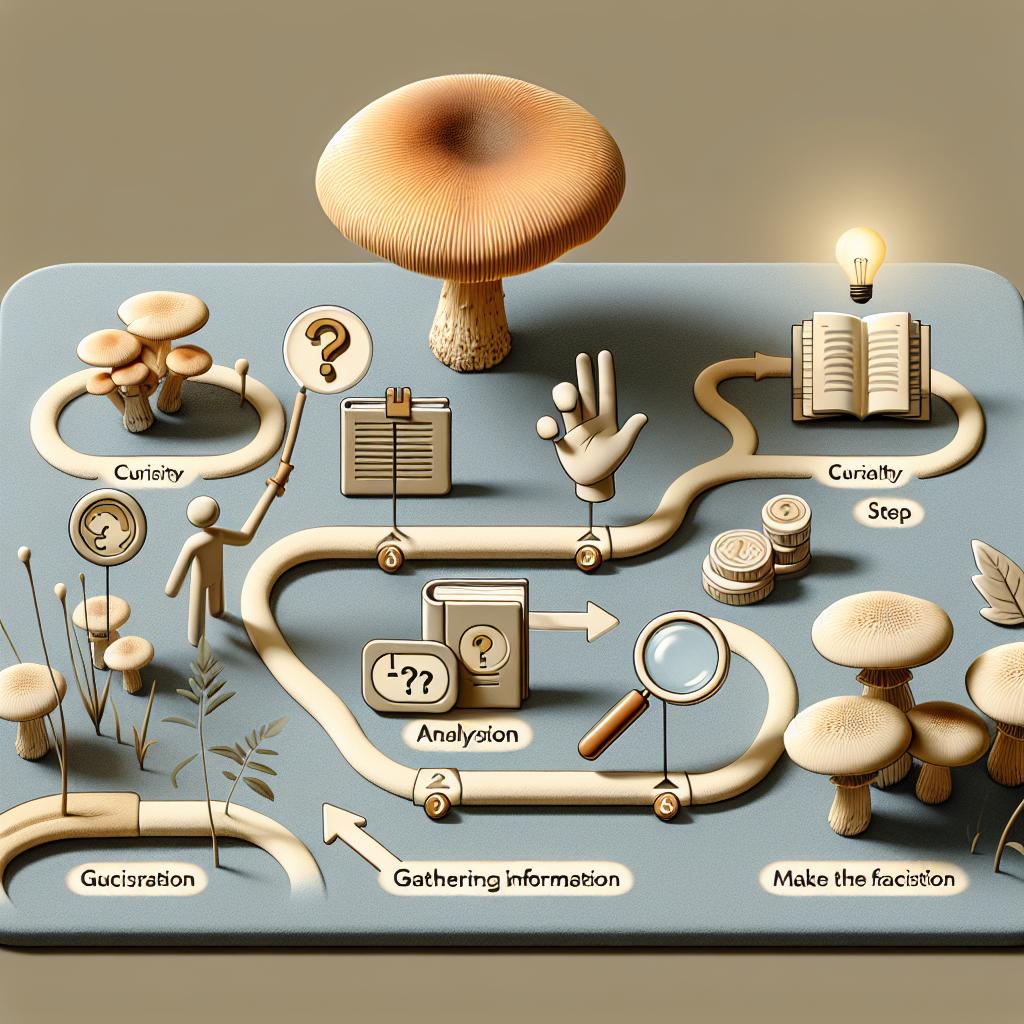
Embarking on the journey of exploring Lion’s Mane mushroom can evoke a mixture of excitement and uncertainty. With its whimsical name and intriguing benefits, this functional fungus has piqued the interest of wellness enthusiasts and the health-conscious alike. However, there lingers a persistent buzz around its potential psychoactive effects. Amidst the rising tide of information and hearsay, let’s dive into the science and sift facts from fiction.
Lion’s Mane: A Trip Towards Health, Not Hallucination – Unlike its psilocybin-containing counterparts, Lion’s Mane is a nootropic, celebrated for its cognitive-enhancing abilities. Rich in compounds known as hericenones and erinacines, it stimulates the growth of brain cells and strengthens neural pathways without inducing any psychedelic experiences. Let’s underscore the key distinctions:
- Nootropic, Not Narcotic: Lion’s Mane boosts brain power, not blood pressure. Its use is linked to improved memory, focus, and nerve health, steering clear of the ‘high’ many associate with mushrooms.
- Legal and Legit: It’s completely legal and widely available, from the aisles of health stores to the marketplace of the internet, shedding its light on mental clarity without the shadow of legal concerns.
- Therapeutic, Not Theatric: This mushroom walks the talk, providing therapeutic benefits that are felt over time, through consistent use, rather than providing an immediate, dramatic effect.
The question of a ‘high’ isn’t so much a matter of sensations but an invitation into the realm of wellness. Here’s where the misconception crumbles and understanding flourishes. Lion’s Mane offers a grounding experience, aligning more with a meditative state than a mind-altering episode. It’s the kind of supplement that cultivates an inner sanctuary of calm and collected cognition. Trustworthy studies echo this sentiment:
| Effect | Lion’s Mane Mushroom | Psychoactive Mushrooms |
|---|---|---|
| Cognitive Enhancement | Yes | No |
| Legal Status | Legal | Varies |
| Psychoactive Impact | No | Yes |
| Long-Term Benefits | Promising | Debatable |
In conclusion, stepping into the world of Lion’s Mane is more akin to unlocking the doors to enhanced mental faculties than to psychedelic escapades. Such a journey demands informed decisions, grounded in research rather than conjecture. The next time curiosity nudges you toward this extraordinary mushroom, remember that you’re reaching for a cornerstone of holistic health, not a high. Lion’s Mane is an ally in the quest for peak cognitive well-being, a natural gift that keeps the mind sharp, the spirit tranquil, and the focus unwaveringly clear.
Q&A
### Can Lion’s Mane Mushroom Get You High?
**Q: I’ve heard a lot about Lion’s Mane mushrooms lately; can they actually give you a high?**
A: Alright, let’s cut to the chase. Lion’s Mane mushrooms aren’t your ticket to the psychedelic express. They’re more like a personal coach for your brain. While they won’t get you high in the way that, say, “magic mushrooms” do, they have been known to boost cognitive function, which can make you feel pretty elevated in terms of mental clarity and focus. So, if you’re looking for a hallucinogenic experience, Lion’s Mane is not the fungi you’re seeking. But if you crave a natural brain boost, you might just become this mushroom’s mane fan.
**Q: What’s the real buzz around Lion’s Mane? How does it affect the brain?**
A: Imagine if you could give your brain a spa day – that’s along the lines of what Lion’s Mane can do for you. It contains compounds that stimulate the production of the nerve growth factor (NGF), which is like a rejuvenating facial for your neurons. This can enhance brain plasticity, which is a snazzy way of saying it helps your brain to heal, grow, and make new connections. So, instead of a “buzz”, think of Lion’s Mane as a cerebral superfood, nourishing your brain’s landscape to potentially improve memory, focus, and even alleviate feelings of anxiety and depression. It’s like brain nutrition that keeps on giving.
**Q: Can Lion’s Mane help with creativity? Sounds like it could be a muse in mushroom form!**
A: You’re on to something! While there’s no exact science linking Lion’s Mane to a surge in creative juices, the mushroom’s potential to enhance cognitive function could indirectly set the stage for creativity. A clear, focused mind is a playground for new ideas, right? If Lion’s Mane can sharpen your focus and fend off the fog, who’s to say that it won’t help you tap into that novel you’ve been meaning to write or that painting that’s been dancing in your imagination? Think of it as the cerebral equivalent of a breath of fresh air for your creative spirit.
**Q: If Lion’s Mane can’t get you high, what’s all the hype about?**
A: The hype is all about health, my friend! Lion’s Mane is riding the superfood wave, hand in hand with kale and blueberries. But it’s not just a fad. Packed with antioxidants, this mushroom supports overall cell health and has been praised for its immune-boosting properties. The excitement lies in its potential to bridge the gap between brain health and longevity, acting as a trusty sidekick in the fight against cognitive decline. So while it won’t send you soaring through the cosmos, it’ll help keep your feet firmly rooted on the path to wellbeing.
**Q: I’m intrigued! How can I incorporate Lion’s Mane into my wellness routine?**
A: Eager to bring Lion’s Mane into your life? You’re in luck; it’s as versatile as it is beneficial. Whether you prefer supplements, powders for your smoothie, or the actual ’shroom in your stir-fry, incorporating Lion’s Mane into your diet can be as easy as pie (mushroom pie, that is). But remember, before making it a staple in your pantry, it’s always a good idea to consult with a healthcare professional, especially if you have any underlying health conditions or take other medications. Why? Because even nature’s wonders should be enjoyed wisely, with a nod to personal health. So, consult, consume, and potentially level up the wellness game!
Embrace the shroom, boost your brain, and live life with a mane of mental clarity – Lion’s Mane could be your ally in the pursuit of a vibrant, healthful existence.
Key Takeaways
And there we have it, the journey through the forest of understanding just how Lion’s Mane mushrooms affect us. These ethereal fungi, with their shaggy, mane-like appearance, have been both a culinary delight and a subject of medicinal intrigue. But when it comes down to the buzz of the hour, let us be crystal clear: Lion’s Mane is no psychedelic sidekick. You might not be getting high in the sense of a psychedelic journey across the cosmos, but embarking on a voyage towards improved cognitive function and neural health can be its own thrilling adventure.
Consider this—while Lion’s Mane may not offer a hallucinogenic escape, it gifts us something more grounded, something inherently nurturing to the vessels we navigate life in: our bodies and minds. So, let’s raise a toast to the rich, earthy aromas of this mushroom marvel, not for a quick head rush, but for the long, enriching voyage towards better health. For isn’t the most profound high one that lifts our wellness over time, rather than a fleeting soar followed by an inevitable crash?
I urge you to embrace the Lion’s Mane as a guide on your personal wellness odyssey. Let the question of getting “high” be overshadowed by the higher purpose of nurturing your well-being. Share your discoveries, dispel the myths, and maybe, just maybe, we’ll all find a sense of elevation that lasts a lifetime. Let’s not just chase a fleeting high. Let’s soar to heights of health and cognitive clarity that endure. Bon voyage on your exploration—just remember, the truest high is in the journey itself.

























